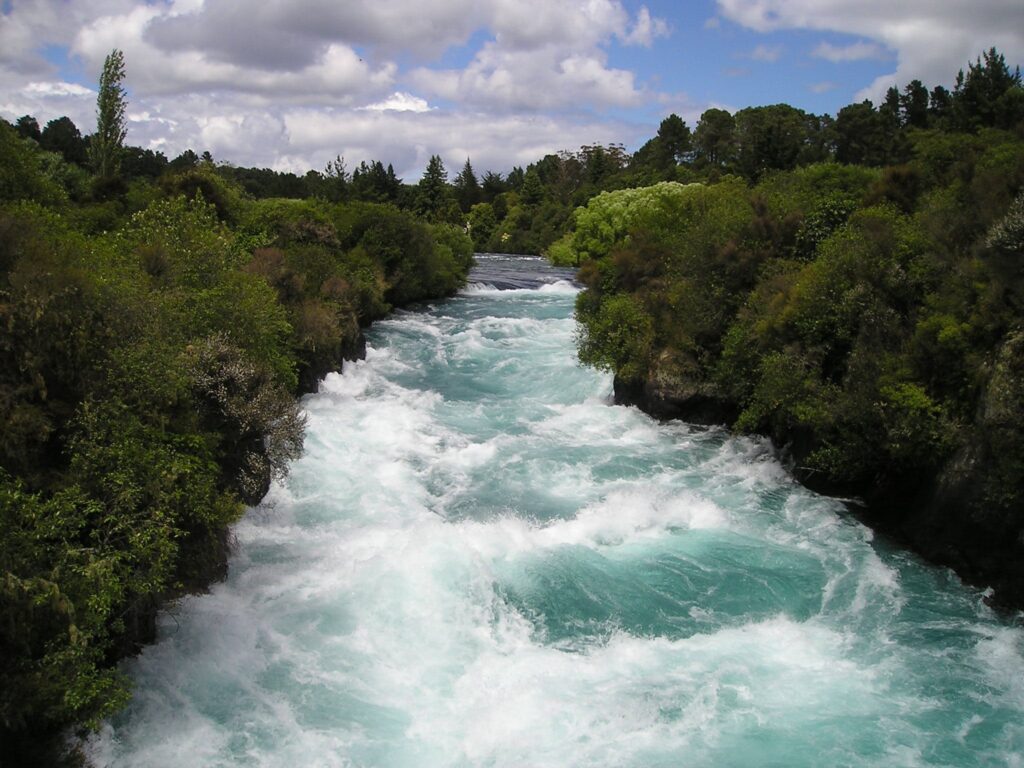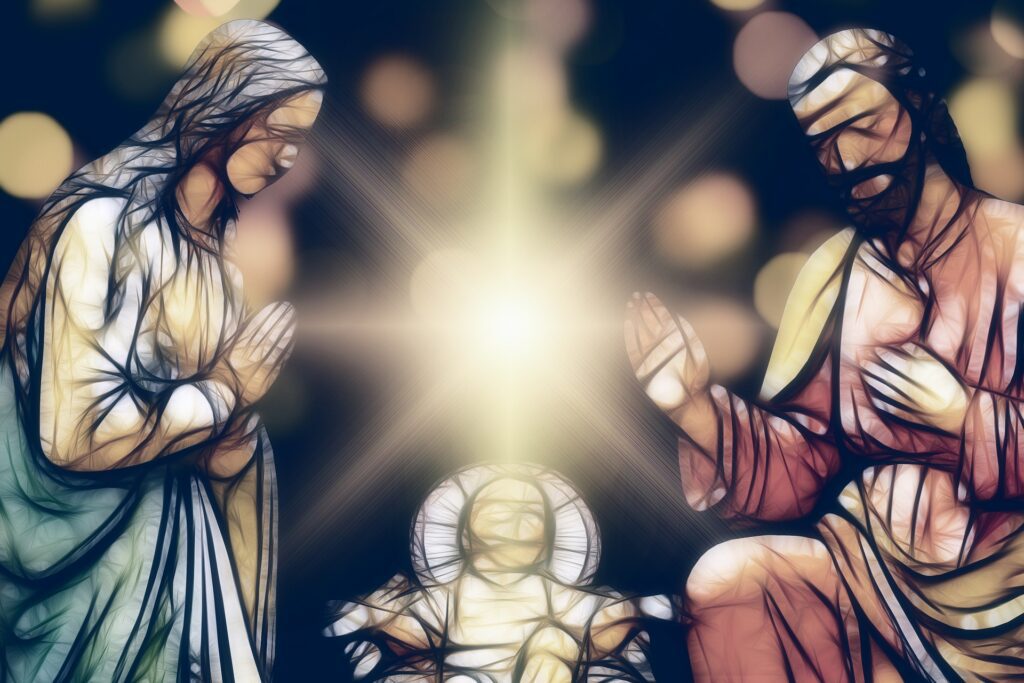This page may contain affiliate links, which means I may receive a commission from purchases made through links.
The story of Jesus brings us to Samaria, where Jesus contrasts the well water that a woman came to draw with the living water he has to offer. She is thirsty, but Jesus recognizes a deeper thirst.
We all know what thirst feels like. Your mouth gets dry and sticky. Your body feels weak. All you can think of is chugging more water than your stomach can contain.
When you are desperate enough for survival, you will take any source of water. Watch any episode of Naked and Afraid, and you will see this is true. This Discovery Channel show features a man-and-woman team on each episode pairing up for survival, with the goal to last 21 days in some of the most dangerous conditions a human can face. And in every episode I have seen, the duo almost immediately searches for shelter and water.
Because of our need for water, and our great vulnerability to thirst, any civilization that expects to live on will find or create sources of water to sustain them. For some, this is easy. In Egypt, many of their prominent cities in the Ancient world were founded along the Nile River, which was so important to them that they worshipped a god named Hapi, whom they credited with the annual flooding of the river that nourished vegetation and families alike.
Thirst in Samaria
Cities that were not stationed along streams or rivers had to get creative. According to John 4:5-6, the town of Sychar in Samaria had a well that was made by Jacob, the grandson of Abraham, nearly 1,500 years prior to Jesus’ incarnation. For a very long time, this deep well produced water for many generations of families.
As Jesus was traveling through the mountainous region of Samaria, he became wearied from his journey and stopped at this very well in Sychar. This was probably his second day of travel since he left Judea, roughly 30 miles south of here. John 4:6 says that “it was about the sixth hour” of the day, high noon according to modern clocks. I can almost feel his exhaustion. The sun beating down on him after two days and 30 miles of walking, he sat beside this well.
I can only imagine how thirsty he might have been. I was parched and exhausted after walking down just 19 flights of stairs for a recent fire drill. Thirty miles in the heat of the middle east? Count me out. But there he was, tired, hungry, thirsty.
Jesus, however, was not the only one who was thirsty. As he sat by the well, a woman came to the well. This was out of the ordinary. In a world without air conditioning, people usually would make it a point to avoid being outside in the hottest part of the day. But here she was, all alone, clearly a strategic decision.
As she approached the well, she would have seen the young man Jesus stationed nearby. As she got closer, her inner narrative reminded her, Don’t make eye contact; just draw water and go home.
Her face to the ground, focused on the task at hand, she hears, “Give me a drink” (John 4:7).
Why is this Jew talking to me? I just wanted to get my water in peace, she thinks.
“The Samaritan woman said to him, ‘How is it that you, a Jew, ask for a drink from me, a woman of Samaria?’ (For Jews have no dealings with Samaritans.) Jesus answered her, ‘If you knew the gift of God, and who it is that is saying to you, “Give me a drink,” you would have asked him, and he would have given you living water'” (John 4:9-10).
We know from John 7:38-39 that Jesus is speaking of giving the Holy Spirit when he promises “living water.” But this was not on her mind at all when she responded, “Sir, you have nothing to draw water with, and the well is deep. Where do you get that living water? Are you greater than our father Jacob? He gave us the well and drank from it himself, as did his sons and his livestock” (John 4:11-12)
Just like when Nicodemus initially missed the spiritual reality behind being “born again,” this woman missed what Jesus meant by “living water.” Just as he asked how someone could enter their mother’s womb again, she asked how Jesus would get any water with nothing to draw it out with.
Growing up, the only times I heard the term “living water” were in a church context. I heard this passage and others that mystified the term, and I thought that the word “living” was what made this water spiritual. However, this was actually a common phrase once upon a time. All it means is water that isn’t sitting still. Rivers, streams, and anything else with a current are categorized as living water.
Now it makes sense to me why she didn’t understand at first. He was not saying something with clear spiritual implications. To her, this meant he would give her fresh water from a moving stream. And considering where she lived, her expectations weren’t high that he could deliver. She, in effect, said, “Yeah, right. This well has gotten us by since Jacob dug it out. Are you better than him?” What she didn’t realize yet is that Jesus is, in fact, greater than Jacob.
He doesn’t flaunt his greatness, but he does hint at it. His response to her doubt begins to peel back layers of meaning: “Everyone who drinks of this water will be thirsty again, but whoever drinks of the water that I will give him will never be thirsty again. The water that I will give him will become in him a spring of water welling up to eternal life” (John 4:13-14).
Quenching the Thirst
Jesus often uses ordinary means to communicate extraordinary truths. Here he is pointing to the Holy Spirit as the same source of eternal life he discussed in John 3. This is another way of teaching the new birth. But it appears that this woman was thinking in terms of physical life. She says, “Sir, give me this water, so that I will not be thirsty or have to come here to draw water” (verse 15). But why did her daily trip to the well burden her so? Jesus digs deeper to find the answer for us.
“Jesus said to her, ‘Go, call your husband, and come here.’ The woman answered him, ‘I have no husband.’ Jesus said to her, ‘You are right in saying, “I have no husband”; for you have had five husbands, and the one you now have is not your husband. What you have said is true'” (John 4:16-18). Jesus clearly knew this would be her response. Why else would he have asked for her husband? This would not have been a modern “Billy-Graham-Rule” sort of request. Jesus had plenty of time alone with her up to this point, and he had no problem in other situations spending time pouring into women in his ministry. This was a pre-meditated, targeted demand, to get to the bottom of what her soul was really thirsty for.
There are two primary interpretations of this passage. In the first, it is assumed that she had five husbands because she was either adulterous or would regularly divorce her husband and marry someone else. I don’t take this view for two main reasons: First, adulterous or promiscuous women were very unlikely to find a husband who would be willing to give them a chance with such a history. Second, if the current man she lived with was not her husband, that likely would mean that they were not having sex, as intercourse was seen in the ancient world as the sealing of a covenant. This is why Jacob could be deceived by his father-in-law into accidentally entering into a binding marriage with Leah, the sister of the woman he really loved, just by sleeping with her (Genesis 29:20-28).
The second interpretation is that she experienced either reproductive barrenness or the coincidental early death of her husbands. This is something that would have been a more common and understandable circumstance. It was a precedent in the Torah that if a man died before his wife could produce children, the wife would marry the next closest willing brother or relative in order to preserve his ancestral line (Deuteronomy 25:5). It is not clear in this passage that this was the exact situation, with all of the husbands being the relatives of the first, but it is either this, or it is a series of men who had mercy on her social status as a female and were willing to try to start a family with her and provide for her. The last man not being her husband may mean he was one of her relatives taking her in, as she would have a hard time finding another man to care for her with that many husbands behind her.
Regardless of which angle one sees this from, one thing is certain: Jesus was poking a wound. Without condemnation, he drew attention to the very thing that kept her isolated and hiding from her community. In both potential situations, the shame of sin or the shame of infertility, she would have been the talk of town each morning if she went with the other women to get water. More than physical thirst, her heart was barren, a dry ground that was desperate for water that would do more than keep her body alive.
When he tells her her own life story, she realizes he is a prophet, and she tries to divert attention from her issues with a theological debate about the right place to worship. Gracefully, Jesus answers her concerns by telling her that the time is both near and here in which location will no longer matter. John continues to tell the gospel story here with a heavy emphasis on invalidating the Jerusalem temple and replacing it with spiritual worship in the body of Christ, the temple of the Holy Spirit.
Naturally, she deflects again by dismissing what he said: “I know that Messiah is coming. When he comes, he will tell us all things” (John 4:25). But Jesus brought it back around in verse 26, saying, “I who speak to you am he.”
This is the moment things clicked into place. A few verses later, we find her running back to town, saying, “Come, see a man who told me all that I ever did. Can this be the Christ?” (John 4:29). In this moment, all her shame left. All her concern for her reputation dissipated. She could not sulk in isolation when she realized who stood before her. With fear of her community gone, she became the first evangelist to be mentioned in the gospels, leaving behind her water jar in such a hurry to tell the news (verse 28).
At first, the people who heard her ran to Jesus out of curiosity, but after he spent two days with them, the villagers reported back to the woman, ”It is no longer because of what you said that we believe, for we have heard for ourselves, and we know that this is indeed the Savior of the world” (John 4:42). This woman and her whole town came to understand that fullness of life would be found in the Man Jesus, and they could not shut up about it.
Are You Thirsty?
We may not be going out to a well to draw water by ourselves, but many of us have unfulfilled longings that burden our hearts.
So what is it you want in life? Is it a family? A secure career? Is it significance? We can easily find ourselves seeking things like these, which do not satisfy. We go on an endless journey of finding the next thing to make us happy. All the while, we miss the only one who can give us eternal life.
Eternal life does not mean having the job you want or the family you want. Nothing physical changed for this woman in Samaria. She was still in the same social situation she was in before meeting Jesus. But what did change was internal. She now had hope, joy, purpose, in the midst of everything she was going through.
Eternal life doesn’t just mean heaven after we die. Eternal life is here. It is now. It is for us here on earth. Eternal life is accessible to those who would come to Jesus. To those who would drink of his living water. God promises in Ezekiel 36:26, “I will give you a new heart, and a new spirit I will put within you. And I will remove the heart of stone from your flesh and give you a heart of flesh.” All you have to do is ask.
Footnotes
*If you enjoyed this post, please comment your thoughts down below and consider subscribing to receive updates on new blog posts.



